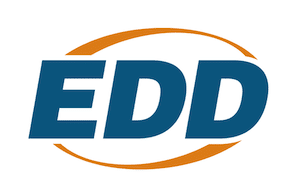
What is an EDD Lien?
The California Employment Development Department (EDD) is responsible for administering the state’s unemployment insurance, workers’ compensation, disability insurance, and personal income tax programs. When businesses and employers fail to pay their payroll taxes or file required reports, the EDD may take collection action, including liens and levies. So, what is an EDD Lien?
EDD Lien
An EDD lien is a legal claim against a business’ or individual’s property to secure payment of unpaid payroll taxes and other liabilities. The EDD may file a lien in the county recorder’s office where the business or individual is located or has property. This gives the EDD priority over other creditors in the event of bankruptcy or foreclosure.
Circumstances Leading to an EDD Lien
The EDD may file a lien against a business or individual for the following reasons:
- Unpaid payroll taxes.
- Failure to file quarterly or annual payroll tax reports.
- Failure to pay unemployment insurance benefits to eligible employees.
- Failure to pay workers’ compensation benefits to injured employees.
Process of Recording an EDD Lien
When a business or individual owes the EDD money, the EDD will send a written notice of delinquency. If the business or individual does not pay the delinquency within 30 days, the EDD may file a lien. The EDD will file a Notice of State Tax Lien with the Secretary of State and record it with the county recorder’s office.
Impact of an EDD Lien on Credit Rating
An EDD lien can have a significant impact on a business’ or individual’ credit rating. It can make it difficult for the business or individual to obtain loans or other forms of financing. It can also damage the business’s reputation and make it difficult to attract new customers and suppliers.
What is an EDD Levy?
An EDD levy is a legal order that directs a third party, such as a bank or financial institution, to turn over money or other property to the EDD to satisfy a delinquent tax liability. The EDD may issue a levy against a business’ or individual’s bank account, accounts receivable, or other assets.
Purpose of EDD Levies
The purpose of EDD levies is to collect unpaid payroll taxes and other liabilities from businesses and individuals. Levies are a last resort, and the EDD will only issue a levy after the business or individual has been given many opportunities to resolve its tax debt.
Process of an EDD Levy
The EDD will send a written notice of levy to the business and the third party. The notice will specify the amount of the tax debt and the property to be levied upon. The third party must comply with the notice of levy and turn over the specified property to the EDD within 21 days.
Differences Between Liens and Levies
A lien is a legal claim against property, while a levy is a legal order to turn over property to the EDD. A lien does not give the EDD the right to take possession of the property, while a levy does.
Financial Institutions Affected by EDD Levies
The following financial institutions may be affected by EDD levies:
- Banks
- Credit unions
- Savings and loan associations
- Trust companies
- Brokerage firms
- Mutual funds
- Other financial institutions that hold property of the taxpayer
Resolving and Releasing an EDD Lien
The only way to resolve and release an EDD lien is to pay the full amount of the tax debt, including interest and penalties. Businesses can also arrange a payment plan with the EDD. If a business is unable to pay the full amount of the tax debt, it may be able to negotiate an offer in compromise with the EDD.
Role of a Tax Attorney
A tax attorney can help businesses resolve EDD liens and levies. A tax attorney can negotiate with the EDD on behalf of the business and arrange payment plans or offers in compromise.
Importance of Communicating with the EDD
It is important for businesses and individuals to communicate with the EDD if they are unable to pay payroll taxes or file required reports. The EDD may be willing to work with businesses to develop a payment plan or other resolution.
Preventing EDD Liens and Levies
Businesses and individuals can prevent EDD liens and levies by taking the following steps:
- Timely file quarterly and annual payroll tax reports
- Pay payroll taxes on time
- Pay unemployment insurance benefits to eligible employees.
- Pay workers’ compensation benefits to injured employees.
- Consult with a tax attorney to ensure compliance with state tax laws.
By understanding EDD liens and levies, businesses can take steps to avoid these collection actions and protect credit ratings.
About Us

Leave a Reply